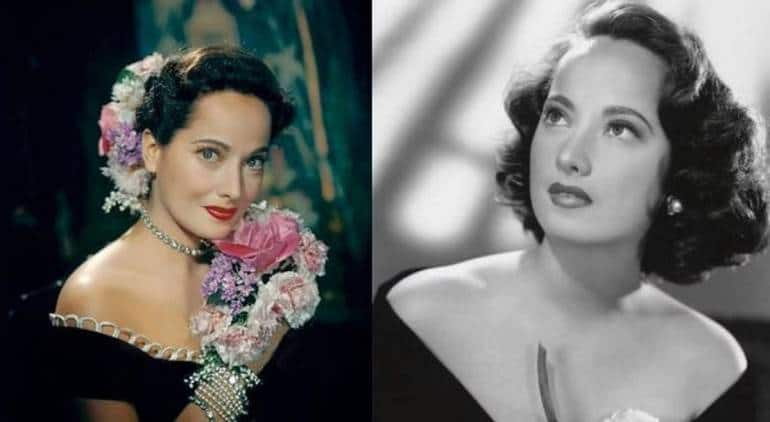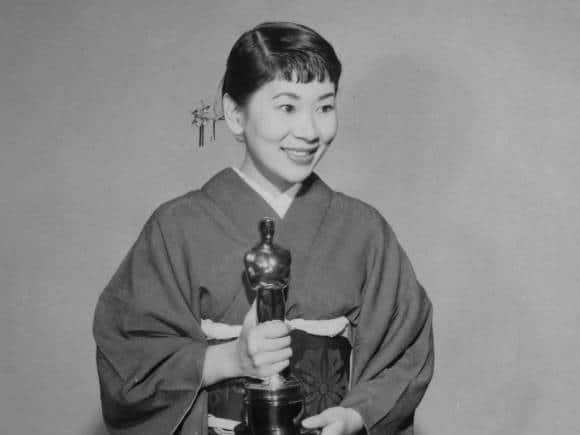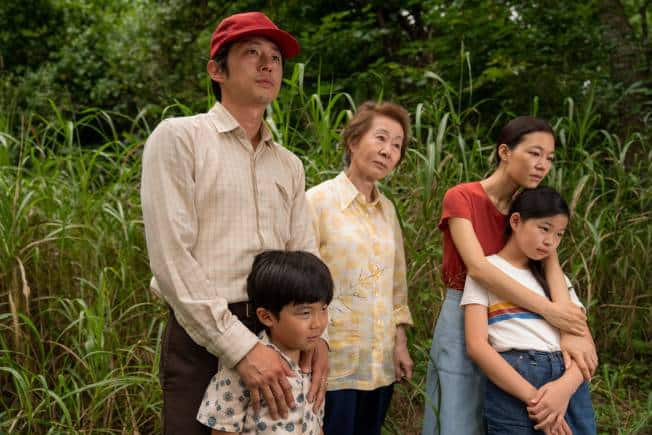



Last week, Michelle Yeoh made history by becoming the first Asian woman to win the best actress trophy at the Oscars. “This is for all the little girls and boys, who look like me, watching tonight,” the Everything Everywhere All At Once actor said in her breathless acceptance speech. “This is a beacon of hope.”
Yeoh has won many awards this season—from the Golden Globe to the SAG Awards—and her acceptance speeches, while each a unique performance, have tugged at that representation thread. Here, Yeoh stood in the strongest beam of the spotlight for the first time in her almost 40-year career, and speaking for Asians, Malaysians, women who are told they are past their prime, immigrants to the US—and anyone else wanting to be seen and heard.
But Yeoh is not the first woman of Asian descent to be recognised at the Oscars. In 1939, a slight, beautiful, temperamental actress played the tempestuous Scarlett O’Hara in the mammoth MGM hit Gone With The Wind. In 1940, Vivien Leigh won her first Academy Award for that performance. In her acceptance speech, she joked demurely: “If I were to mention all those who’ve shown me such wonderful generosity through Gone with the Wind, I should have to entertain you with an oration as long as Gone with the Wind itself.”
Vivien Leigh had been in Hollywood for barely four years, but more than her acting prowess, she was known for her “exotic” looks. While it is widely known that Leigh was born in Darjeeling in 1913, what has been a subject of inquiry for decades is whether she was of Irish, Scottish and French descent alone, or if there was some Asian ancestry as well. Leigh had inherited her dark hair, alabaster skin and blue eyes from her mother, Gertrude Mary Frances, whose maiden name was Yackjee.
Biographers like Hugo Vickers, Anne Edwards and Kendra Bean have alluded to Leigh’s Asian ancestry, but it was Liz Chater, a genealogist who researches Armenians in India on her blog chater-genealogy.blogspot.com, who first traced the Armenian and Parsi origins of Vivien’s mother, Gertrude, in a 2015 article.
Gertrude’s father Michael John Yackjee was an Armenian railway worker in Calcutta, Chater concluded from a deep-dive into archives. “Vivien's father, Ernest Richard Hartley, was born in Scotland, but many of his relatives lived in and around Yorkshire,” wrote author Kendra Bean in a Twitter post in 2020. “Vivien spent quite a bit of time in Bridlington whilst growing up. This being the Victorian era, Ernest went to India in 1905.”
“According to Hugo Vickers, Ernest's interest in Gertrude initially caused a stir among Ernest's imperialist British circle in Calcutta,” the thread continues. “He was told to expect ostracism and supposedly had to resign from the Bengal Club, because Gertrude was half-caste.”
Borrowing from Chater’s research, Bean wrote: “It turns out that Gertrude's paternal grandfather, Johannes Gabriel Yackjee, was an Armenian Catholic who immigrated to India in 1843 and settled among the Armenian community in Calcutta. Johannes' son, Michael, married Mary Theresa Robinson, hence the Irish connection.”
“Rumer Godden, author of BLACK NARCISSUS, knew Gertrude Yackjee-Hartley in Calcutta and described her as having ‘beautiful dark auburn hair and magnificent blue eyes’. Some said she was even more beautiful than Vivien in her youth,” Bean wrote. “It seems likely that Gertrude was aware of her Asian ancestry because she and her siblings sometimes used their mother's maiden name, Robinson. Whether Vivien was aware of her Armenian roots, we don't know.”
Leigh’s claim of Irish and French ancestry was convenient for MGM’s press relations officers, since it tied in with Scarlett O’Hara’s own origin story. Regardless of her knowledge of her Armenian ancestry, Vivien Leigh spoke fondly of her time in India. “I was born in one of the most romantic places in the world — Darjeeling — although I have only confused impressions of its beauty, and of the gaiety of life there, for my father, who was a stockbroker, brought the family back to England when I was five.”
Gertrude had twin girls after Vivien who passed away a day after being born and were buried in Ooty. According to another historian P.J. Vasanthan, Vivien’s father, who had been a successful stockbroker in Calcutta, and a member of the Turf Club who bred racehorses, joined the World War I as a cavalry officer responsible for training remounts chiefly for the Mesopotamian campaign. He was posted to Bangalore in 1916, and young Vivien along with her mother moved to the nearby hill station of Ooty, which was known to have an amateur theatre group run by English army wives.
This is where Vivien, at age three, made her stage debut, singing Little Bo Peep, dressed as a Dresden shepherdess. In autumn 1964, Vivien returned to India for the first time since she left for London, where her acting career bloomed with the acquaintance of Maureen O’Sullivan, who would herself grow into a film star, playing Jane in the Tarzan series in the 1930s.
Bean, who was the first biographer to access superstar Laurence Olivier’s archives (also Leigh’s second husband) noted that Vivien’s letters described “her adventures in Nepal and India, the beauty of the people, the landscapes, the culture. Kathmandu, Delhi, Madras, and Karanjia were on her list. She wrote with great delight about the temples, funeral pyres on the rivers, friezes of erotica, elephant rides and a journey in the Raj’s plane for breathtaking views of the Himalayas and a close-up look at Everest. It was a ‘return to her roots’, although she never went back to Darjeeling.”
 Merle Oberon
Merle OberonLike Leigh, Merle Oberon, who had scored an Academy Award nomination for her 1935 film Dark Angels, and shot to fame with her work in the 1939 classic Wuthering Heights, didn’t talk much about her Asian ancestry. In fact, Oberon actively sought to mask it. Born in Mumbai, she claimed she was born in Tasmania to a British army officer, but is thought to be of Maori and Sri Lankan descent. A Forbes piece has noted that she used skin-lightening cosmetics to hide her tan and introduced her South Asian mother, who joined her in England later, as a maidservant.
Cher, who won the best actress Oscar in 1987 for Norman Jewison’s classic romantic comedy Moonstruck, was born in the United States but was of Armenian descent. In her acceptance speech, she spoke of her 24 year-long struggle, thanked the unsung heroes behind the scenes like her make-up person and technicians, and mentioned how her mother had wanted her to “be somebody” when she was very young. Lately, she has been vocal about her politics and the persecution of Armenians at the hand of Azerbaijan.
 Miyoshi Umeki, the first Asian person to win an award for acting at the Oscars, in 1957.
Miyoshi Umeki, the first Asian person to win an award for acting at the Oscars, in 1957.The first Asian person to win an award for acting at the Oscars was actually Miyoshi Umeki. In 1957, the “shin Issei” or post-1945 immigrant from Japan, won the best supporting actress award for her role as Katsumi, the submissive wife of actor Red Buttons in Sayonara. In a 2018 article, Entertainment Weekly notes: “She accepted her Oscar in a kimono, and her speech was gentle and tentative. “I wish somebody would help me right now,” she said, seeming to struggle with the language barrier. She then thanked “all American people” and bowed to the audience.” The article also talks about how she struggled against stereotypes and eventually threw her Oscar trophy away.
 A still from 'Minari' (2020)
A still from 'Minari' (2020)In 2020, Lee Isaac Chung’s Minari won over critics and several Oscar nominations for its gentle portrayal of a Korean-American family that moves to Arkansas to pursue its own American dream. Seventy-three-year-old Youn Yuh-Jung, who played Soon-ja, became the first South Korean actor to be nominated and to win an Oscar award (for best supporting actress.)
Shocked with her win, she poked fun at Minari executive producer Brad Pitt in her acceptance speech, but also said: “Gender doesn’t matter. I don’t know how to divide like this: man, woman, black and white, yellow, brown, or gay or straight. I don’t want that kind of thing. We are just equal human beings. We have the same warm heart.”
Later, she wondered how she could have won over actresses like Glenn Close, Amanda Seyfried, Olivia Colman and Maria Bakalova. “I don’t believe in competition. How can I win over Glenn Close?” she said to the press later. “I’ve been watching so many of her performances. Five nominees—we are the winner for each different movie. We played different roles, so we cannot compete with each other.”
“Tonight, I have just a little bit of luck, I think. Maybe I’m luckier than you.” And then, she articulated the more cynical view of the Oscars’ diversity campaign, but in the most charming way possible. “Maybe (this) is American hospitality for the Korean actor.”
Discover the latest Business News, Sensex, and Nifty updates. Obtain Personal Finance insights, tax queries, and expert opinions on Moneycontrol or download the Moneycontrol App to stay updated!
Find the best of Al News in one place, specially curated for you every weekend.
Stay on top of the latest tech trends and biggest startup news.